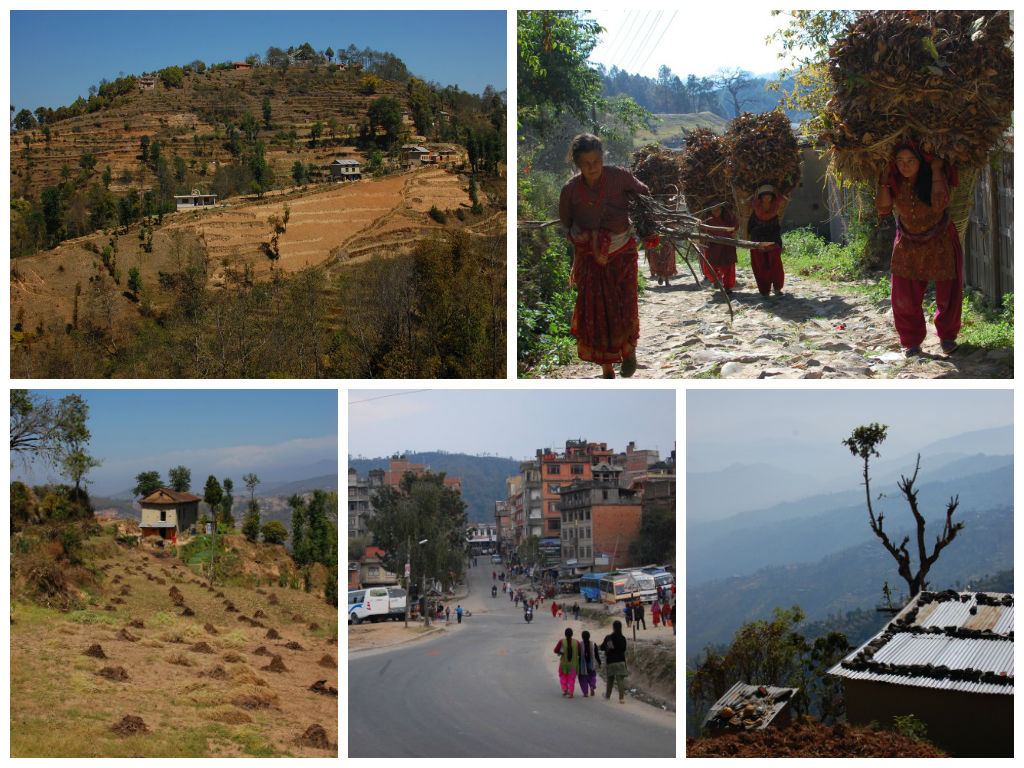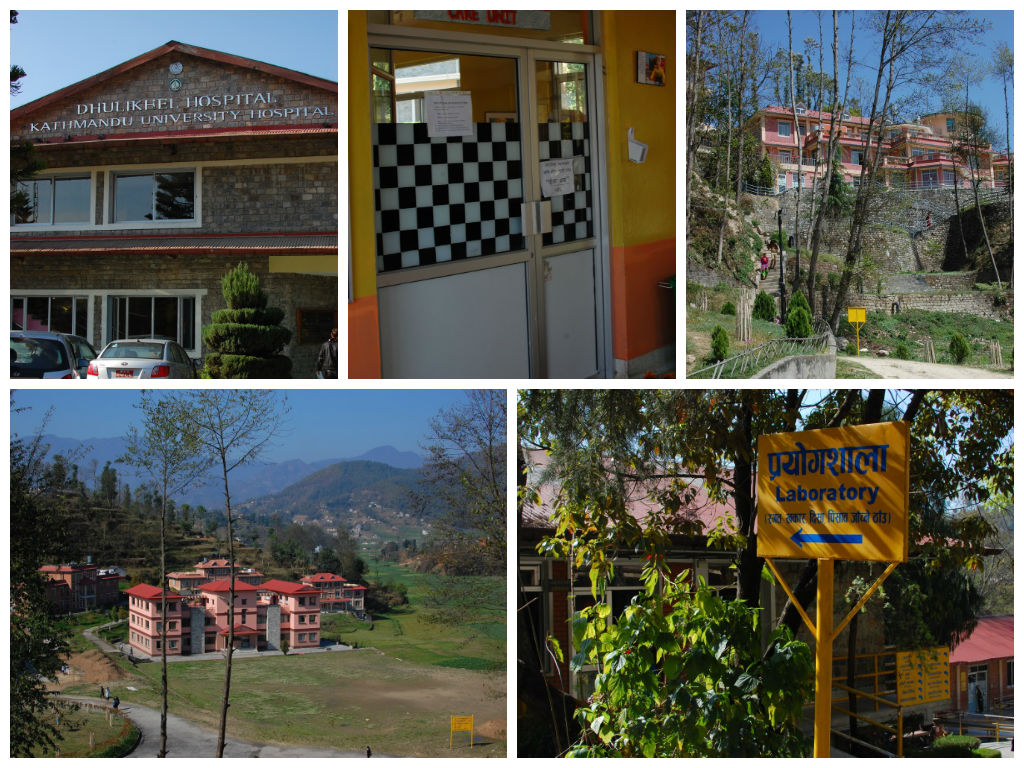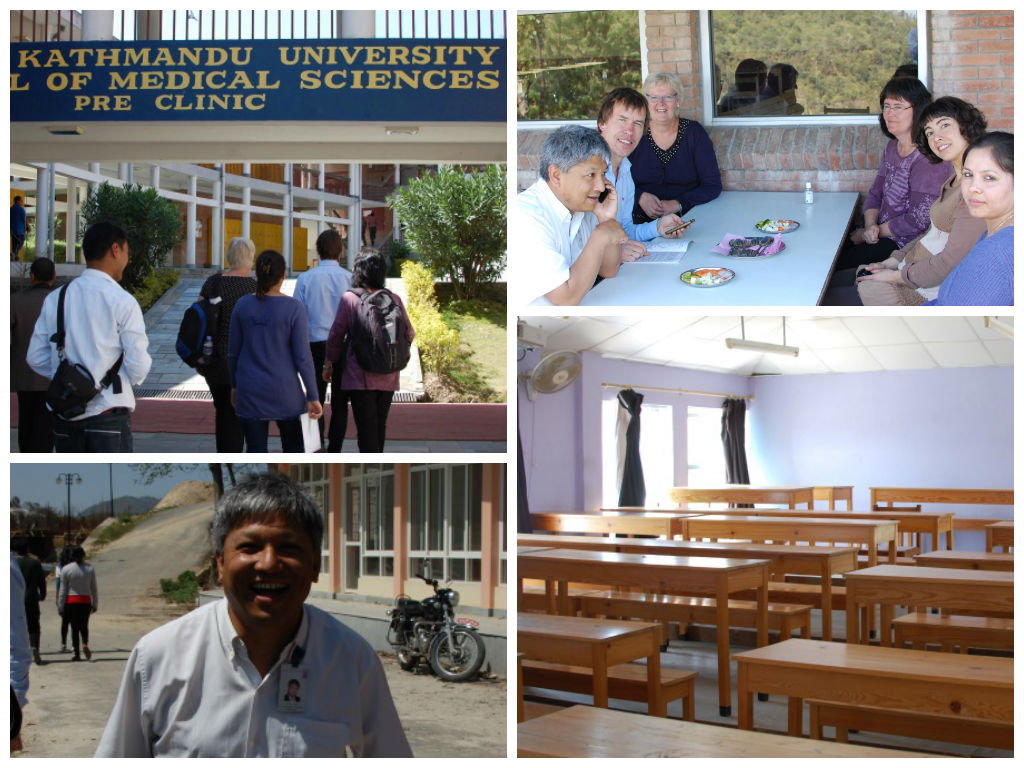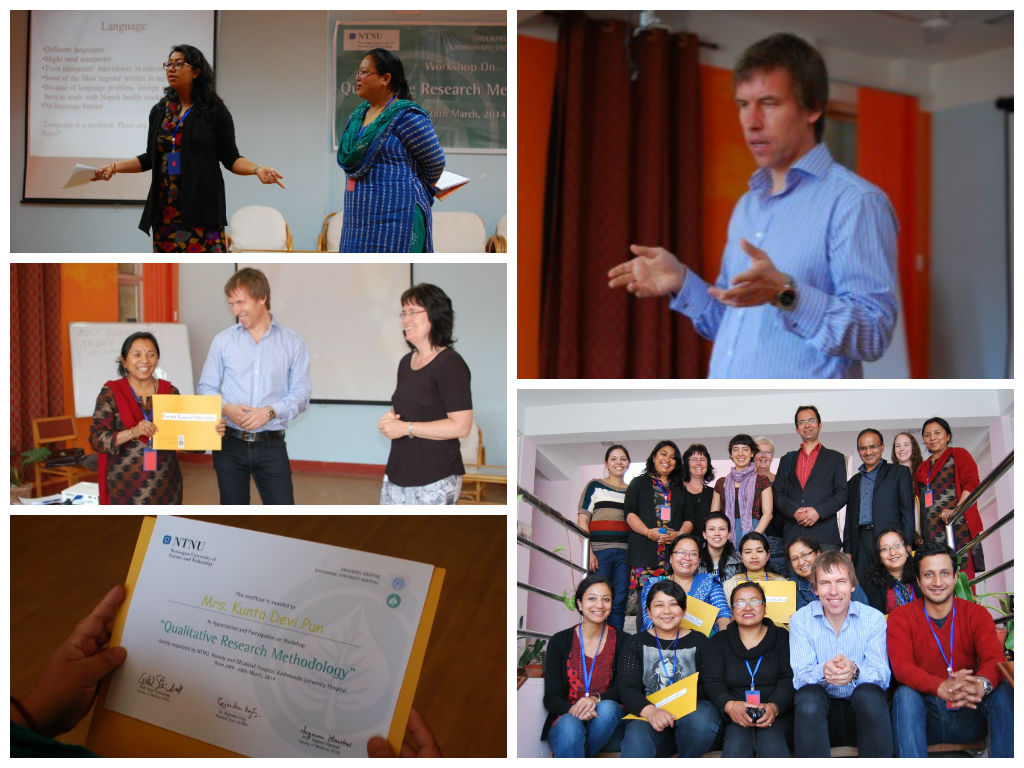Blogger: Jennifer Infanti
Photos: Jennifer Infanti & Elisabeth Darj (NTNU), Chandra Yogal (Dhulikhel Hospital-Kathmandu University Hospital)
Elisabeth Darj and I arrived under blue skies at Tribhuvan International Airport on Monday morning, March 24th, 2014. Elisabeth negotiated a price and a verbal guarantee of “safe driving” with a local taxi driver, Rajesh, and we set off with Rajesh on the 30 kilometres drive from the airport to Dhulikhel, the administrative capital of Kavrepalanchok district, Nepal.
Dhulikhel’s population of approximately 14 000 people (2011) is comprised primarily of Newār people who are indigenous to the Kathmandu Valley. The Newārs are traditionally farmers and agriculture continues to be a primary source of livelihood for the majority of people in the community. Our visit coincided with the start of the wheat harvest, and we arrived to landscapes of golden fields and terraced hills.
Elisabeth and I settled into our accommodation at Dhulikhel Lodge Resort and later met our other colleagues from the Department of Public Health and General Practice, Aslak Steinsbekk and Ingunn Harstad, as they returned to the lodge following the first day of Aslak’s week-long course on qualitative research being held at Dhulikhel Hospital.
Dhulikhel Hospital is the teaching hospital of Kathmandu University. It is an independent, not-for-profit institution, serving a population area of approximately 2 million people. NTNU has been formally collaborating with Kathmandu University since 2002 in a variety of disciplines: engineering, natural and social sciences.
In 2007, the Faculty of Medicine (DMF) at NTNU established an official collaboration with the Kathmandu University School of Medical Sciences and Dhulikhel Hospital to facilitate teaching and research exchanges of students and staff between the two institutions. Ingunn Harstad is the current coordinator of this partnership, and the reason we were all in Nepal on this occasion.
With increasing numbers of students from Nepal enrolled in NTNU degree programmes, Ingunn has been encouraging efforts by DMF to offer Master- and PhD-level credit courses locally in Nepal. Aslak agreed to teach his course, Qualitative Research Methods (SMED8015), as the pilot initiative of this project. On this occasion, most of the participants only took part in the week-long course but a few signed up to obtain the full course credits and thus have continued after the week with the required assignments.
Elisabeth and I are working on a research study led by Berit Schei, “Evaluating interventions in antenatal care to identify and assist victims of gender-based violence in Nepal and Sri Lanka”. This study employs two NTNU PhD students from Nepal, Poonam Rishal and Kunta Devi Pun, both of whom were enrolled in the qualitative research course.
For the next four days then, Elisabeth and I joined Aslak, Ingunn, Poonam, Kunta and the 15 other students in the course for a series of lectures and group-based project work. Between breaks for masala tea and lunches of dal baht or momos (Nepali dumplings) at the hospital canteen, we learned strategies to collect data using interviews and focus groups and became more familiar with the techniques of thematic qualitative data analysis. Overall, the course participants were enthusiastic and diligent, and the quality of the group conversations and project presentations more than met teaching expectations. Elisabeth and I also had the opportunity to work with our two PhD students in the evenings on their projects, making it a very productive week for all of us.




